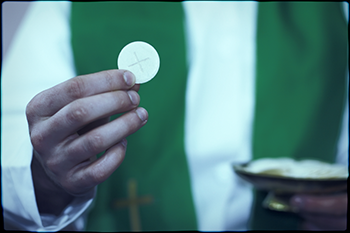
A few days ago, the City of Baltimore announced that it would begin to accept "identity" documents issued by the Roman Catholic Archdiocese of Baltimore to "undocumented immigrants and other vulnerable people that the Baltimore Police Department has agreed to recognize — a program activists hope will make people more willing to cooperate with law enforcement."
In a piece published by the Baltimore Sun, city officials and immigrant advocates trotted out the usual reasons for such a move, including the "more willing to cooperate with law enforcement" rationale mentioned above, although to date I have never seen empirical data proving that immigrant communities don't want to cooperate with police in eliminating criminals from their midst.
Given that immigrants are often the primary victims of crime committed by the predators in their own communities — such as members of transnational gangs like Mara Salvatrucha (MS-13) or the Latin Kings — logic would dictate that they have every incentive to cooperate, with or without home-brew identity cards.
Then there is the question of the legitimacy of such "identity" documents. The requirements for procuring one are basic enough, according to the Sun:
To qualify for a card, an applicant will need to have been a member of a parish for three months, present other identity documents and have a witness testify to their identity. The cards will be linked to parish membership records, but there will not be a specific database of cardholders, which could guard against any future attempt by federal immigration officials to track cardholders.
If the whole premise of this enterprise is to give "undocumented and other vulnerable" individuals an identity document they can use in their dealings with police or other city offices, then exactly what "other identity documents" will they be presenting to get that parish document? If, on the other hand, they have other documents to establish identity, wouldn't those be the first, best proof of one's identity in dealing with officialdom?
Another question: Will the city and archdiocese be cooperating in such a program to give identity documents to homeless and dispossessed citizens? If not, why not? Why the disparate treatment?
One suspects that the real hope of archdiocese and city officials is that these pseudo-documents will at some point be recognized by the state of Maryland as adequate for a variety of services such as providing a driver's license. But why should they be? What makes the archdiocese expert in such matters as establishing identity by use of rigorous, tested methods? And, as a matter of equity, how long will it be before Lutheran Services, and HIAS, and other religiously based migrant advocacy groups demand equal treatment?
It also seems to me that this arrangement violates at least in principle the separation of church and state. Why not let public unions such as SEIU, which counts a significant number of illegal aliens among its membership, do the same thing? (Note that I'm not actually advocating this; I think doing so would approach insanity. But then, so does the current scheme.)
Finally, it is worth observing that the more accepted and acceptable such ersatz documents become for various purposes within the city, county, or state, the more they will be used as breeder documents to get real, official identification documents to create completely false identities for aliens, at least some of whom will be exactly the type of individuals the city claims that it wants to safeguard immigrant communities against: the criminals.
